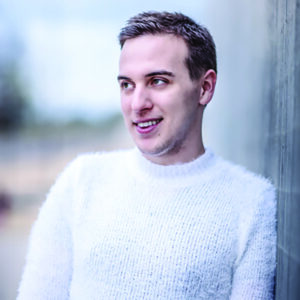by Nick Lingerfelt
Back in 2011, Phillis Lewis started her research for what would become Love Doesn’t Hurt, an organization that aims to bring more awareness to domestic violence within the LGBTQ community.
Lewis said she noticed many people were not talking about this issue and when they did talk about it, they did not know where to go for assistance.
“I wanted to bring more awareness and to help people feel more comfortable about discussing it and how to not only talk about reporting it but also if they saw it going on how to address their peers,” Lewis said.
Before Lewis started Love Doesn’t Hurt, she went to the Memphis Police Department and the Sheriff’s Department to find out what the numbers were for same-sex intimate partner domestic violence. For that year in the State of Tennessee, there were up to 7,000 cases of domestic violence but only 213 of those were of a same-sex relationship.
Feeling like this number was lower than it should be, Lewis decided to do some digging.
“That’s when I started digging up things like there were agencies out there that would discriminate against people that when they would go to seek resources instead of focusing on that person’s trauma, they were focused on the fact that they were gay,” Lewis said. “Or you had agencies that weren’t well trained in dealing with someone who may be trans and mis-gendering them or with shelters and not having that training and knowing how to deal with some who is transgender and making sure the services and the policies they had in place were inclusive to not cause that person to feel more uncomfortable than they already did because they are in an unknown space trying to deal with this horrific incident that happened to them.”
In the past year, Love Doesn’t Hurt has expanded its focus to also addressing the issue of sexual violence within the community because that issue is sometimes tied to intimate partner domestic violence.
They created Love Sessions, which is an open forum to talk about the difference between healthy and unhealthy behaviors and to ensure people know how to live healthy lifestyles.
“The good thing about Love Sessions is that even though there is a facilitator there, it’s mostly communication going back and forth between your peers because there may be something that you may hear someone else say that touches you and hits home with you and makes you look at things a lot differently,” Lewis said. “Statistically, it shows you learn more from your peers than you do from a teacher, so you may have someone who’s up there at the chalkboard writing all this but you’ll hear it better and you’ll take it in better from the person sitting next to you because you feel like you’re on the same level.”
Love Sessions is partnered up with different agencies, so they are actually housed at the different agencies to make it where it’s across the city and also a way to give people multiple opportunities to go to a session.
While all relationships are not perfect, communication plays a big role in being able to have a healthy and working relationship.
“As we all know, relationships are not all rainbows and butterflies, so you want to make sure whoever you’re with is someone that you can withstand the good with the bad and be able to talk about it,” Lewis said.
Need help? Contact LGBTQ Liaison & Navigator Edith Love at edith@familysafetycenter, or by phone at 901.222.4436.




